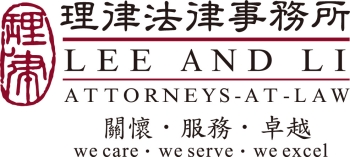The copyright of a work is vested in its author. If another person wishes to use that work, he or she must obtain the relevant rights or licence from the author. However, the copyright's duration is long. According to Article 30(1) of the Copyright Act, copyright survives for the lifetime of the author and a further 50 years following the author's death. Therefore, if during the lifespan of the work's copyright it becomes unclear who the author is, or if the author is dead and his or her successor is unclear as to who the original author was, how may a third party proceed to use the copyright?
For works in the cultural and creative industry, Article 24(1) of the Law for the Development of the Cultural and Creative Industries stipulates:
"if a copyright user makes its best effort but fails to obtain a valid authorization from the copyright owner due to either the identity or the location of the copyright owner being unknown, the user may clarify the reason for his failure to obtain such valid authorization to the copyright competent authority. After the copyright competent authority confirms the reason reported by the user through investigation, it shall grant the user an approval of license to utilise the work within the permitted scope with the condition that the user deposits royalties in the amount determined by the copyright competent authority."
Pursuant to this provision, the Taiwan Intellectual Property Office (TIPO) permitted a user to use the musical work of an unknown author through an approved licence in Order Zhi-Zhu 10416002442, April 22 2015.
TIPO held that the user met the condition of "making his best effort", since the user had taken various steps to locate the author and had even placed an advertisement in a newspaper inquiring about the ownership status of the copyright but received no response after 30 days. Following an investigation, TIPO discovered that the original author was deceased, but was unable to locate the author's successor. TIPO therefore accepted that the condition of "the identity or the location of the copyright owner being unknown" was met, and subsequently issued an approval to the user for use of the musical work within the permitted scope.
In addition, pursuant to Article 24(3) to (5) of the Law for the Development of the Cultural and Creative Industries, TIPO expressly stated the conditions and scope of this approved licence (eg, the conditions for duplication, rental and dissemination, public performance, licensed territory and the non-exclusive nature of the licence). TIPO also required the user to expressly disclose the licence date, reference number, foregoing conditions and scope of the licence in copies on the user's works. The user was also required to deposit a specific sum of royalties as remuneration in accordance with the order and report to TIPO the status of the deposit before using the work.
If during the licence period the author of the licensed musical work lodges an objection to the licence, TIPO may rescind the approval of the licence. If the user is found to have made a falsified application or failed to use the work in the permitted manner, TIPO can immediately rescind its approval (Article 24(6) and (7) of the Law for the Development of the Cultural and Creative Industries).
For further information on this topic please contact Hsiu-Ru Chien or Shih-I Wu at Lee and Li Attorneys at Law by telephone (+886 2 2715 3300) or email ([email protected] or[email protected]). The Lee and Li website can be accessed at www.leeandli.com.




